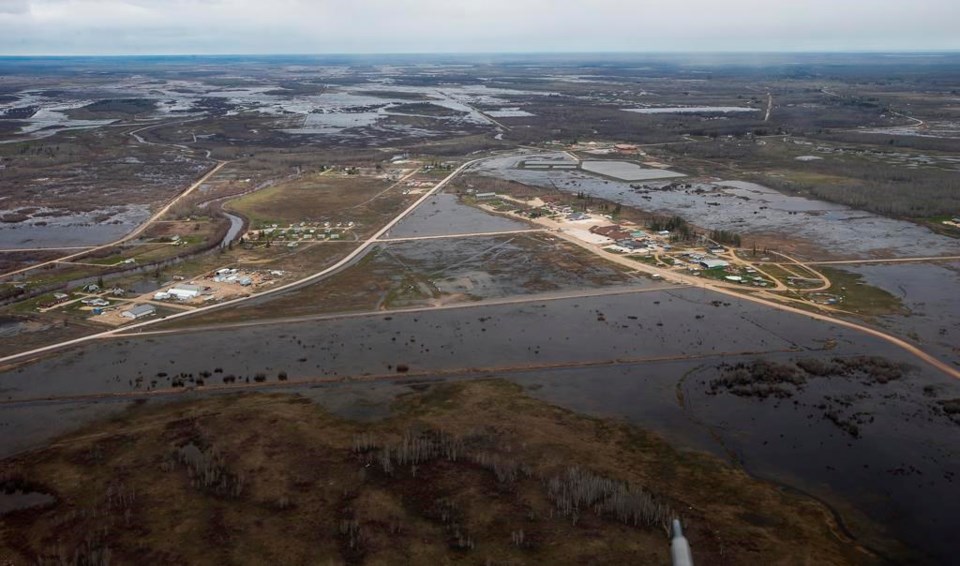PEGUIS, Man. — A Manitoba First Nation has declared a state of emergency in response to a health crisis caused by repeated flooding.
Peguis First Nation says it has endured persistent flooding over the years that has caused heavy damage to infrastructure and housing.
It says the community has seen significant rates of emotional distress and mental health disorders among children and adults, with a rise in self-harm among youth, drug addiction and incidents of domestic violence.
The First Nation recently filed a lawsuit alleging the federal and Manitoba governments failed to protect the community from the frequent flooding.
It also alleges two nearby municipalities diverted water from their areas to improve drainage, but in a way that added to flooding on the reserve's land.
Chief Stan Bird says the $1-billion lawsuit shows their determination to fight for their rights and to secure the necessary resources for the community.
"Our staff are overwhelmed; our people continue to face a life of uncertainty," Bird said in a statement. "This has caused immeasurable suffering on children, families and community.
"Despite these challenges, we are committed to a path of recovery, protection and justice."
The lawsuit contains allegations that have not been proven in court, and the defendants have not yet filed statements of defence.
Peguis First Nation was originally in another part of Manitoba on fertile farmland. It was relocated more than a century ago to the marshy delta of the Fisher River, 200 kilometres north of Winnipeg.
The federal government conceded in 1998 that the land transfer that prompted the move was illegal. The two sides reached a settlement 11 years later.
The First Nation says it has suffered an average of one flood every two years since 2000. It says the worst flooding, in 2022, caused widespread damage and the evacuation of members to hotels in Winnipeg.
More than 500 members who left because of the 2022 flood still haven't returned, it says, as is the case with 235 people who fled flooding in 2014 and 2017.
The federal government says it has worked with Peguis on an ongoing basis, including a memorandum signed last year to formalize long-term flood protection and recovery.
Despite the First Nation's efforts to collaborate with the federal and provincial governments, however, Bird says the response has been "woefully inadequate."
"We urgently call on the federal and provincial governments to engage with us, to listen to our needs, and to implement lasting solutions that will prevent future crises and support our community's recovery," he says.
This report by The Canadian Press was first published May 1, 2024.
The Canadian Press




